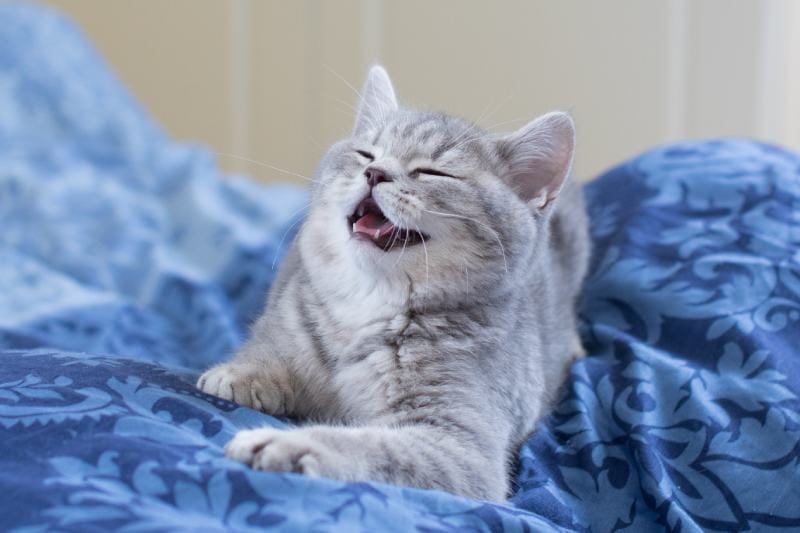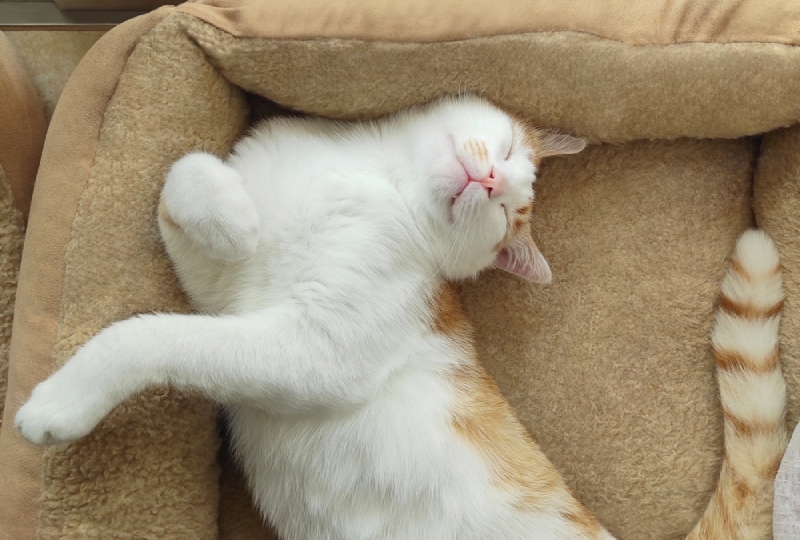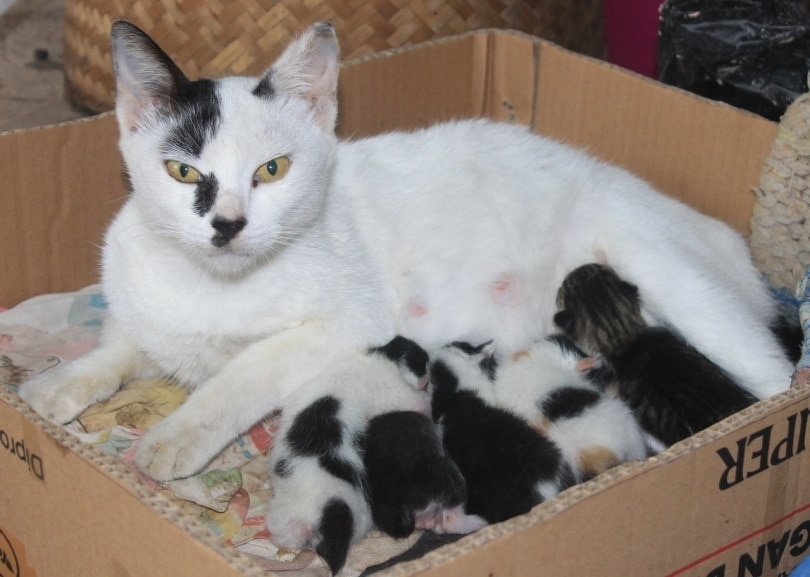Can Cats Eat Sausage? Vet-Reviewed Potential Benefits & Risks
By Ed Malaker
Updated on
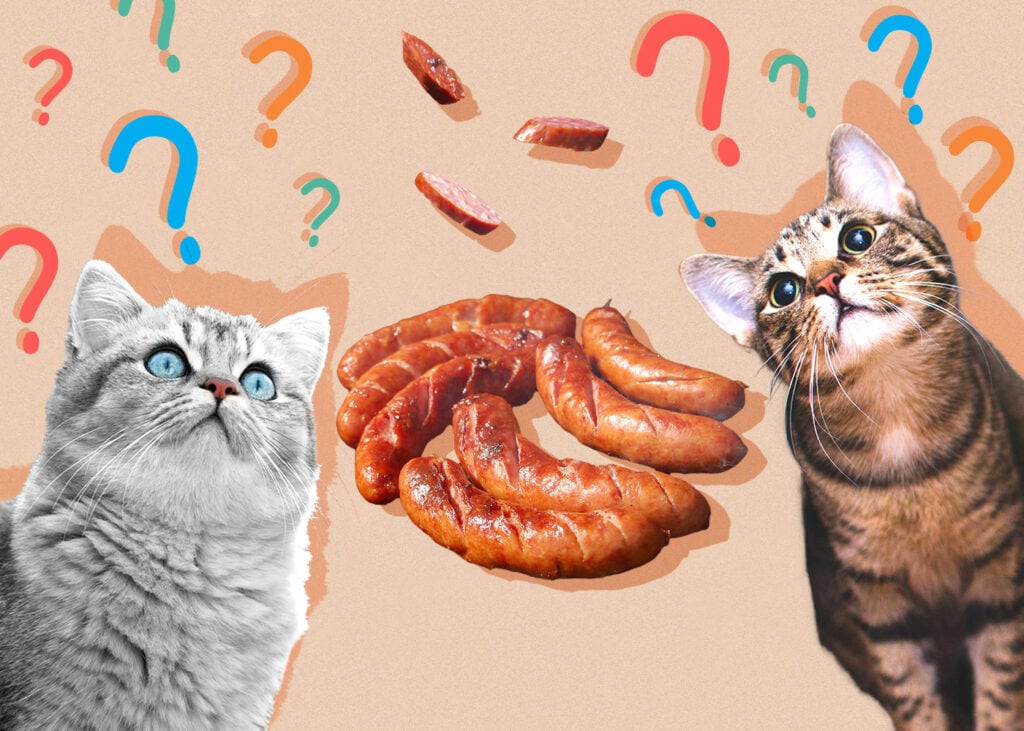
As pet owners, we want to provide them with the best possible diet while giving them plenty of variety to keep them interested in eating healthy. Cats are obligate carnivores and can eat many different kinds of animal proteins. Therefore, you may want to know if it’s okay for your cat to eat sausage.
The short answer is yes. Cats can eat most types of plain, unseasoned sausages; however, there are healthier treat alternatives you should consider before offering your cat a sausage. You also need to be mindful of theingredients in the sausages. Keep reading while we look at the benefits and the potential risks of feeding your cat sausage.
Potential Benefits of Sausage
Protein
Most sausages have protein from an animal source, which is necessary for your cat’s nutritional well-being. As carnivores, cats are well adapted to using protein for energy when possible. Cats are very efficient at de novo synthesis of glucose from proteins; they can efficiently make glucose within their bodies from the protein they consume.
Perception of Carnivore-Appropriate Foods
Since sausages are made of meat, they are perceived as being closer to the cat’s natural diet than the corn and soy ingredients found in some cat food brands. Many owners who feed their cats meat snacks do so because they feel it is more species-appropriate for them.
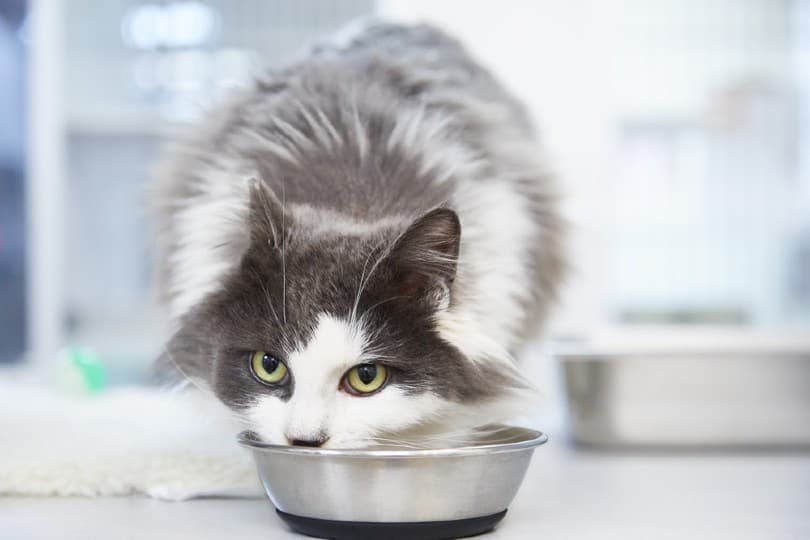
Potential Risks of Sausages
Preservatives
To obtain a long shelf life, most sausages contain many preservatives. These are added to the mix of the sausage during processing. Some of these preservatives also prevent the growth of certain microorganisms and may enhance the sausage’s flavor and color, too. These include:
- Nitrates and sulfates
- Salt
- Sodium nitrate
- Potassium

Unknown Recipe
In addition to the preservatives, sausage can contain many unknown amounts of certain ingredients, as each brand uses their own recipe. Many brands will list the ingredients on the package, and you can go through them to see if they’re all safe. However, they don’t mention their recipe, and though the ingredients are often ordered by weight, you still wouldn’t know exactly how much of each ingredient the sausage contains.
Perhaps even more confusing is the fact that many brands may use a proprietary or “secret” blend of spices, so you will never know what exactly is in the sausages. This renders most sausages inherently very risky for your cat.
Calories (Fats)
Unfortunately, sausage is high in calories. In fact, many sausages are higher in fat than protein, and fat being incredibly calorie-dense can quickly lead to health issues for your pet (and for you!)
Consumption of more calories than required leads to weight gain in your cat, which may eventually lead to obesity, a major problem many pet cats face around the world. Some estimates say more than 50% of cats over 5 years old are obese. Obesity can lead to several health problems, like heart disease and diabetes, that can shorten your pet’s life. Obesity is entirely preventable by keeping your cat on a healthy diet (appropriate for their life stage) and making sure they get plenty of exercise.
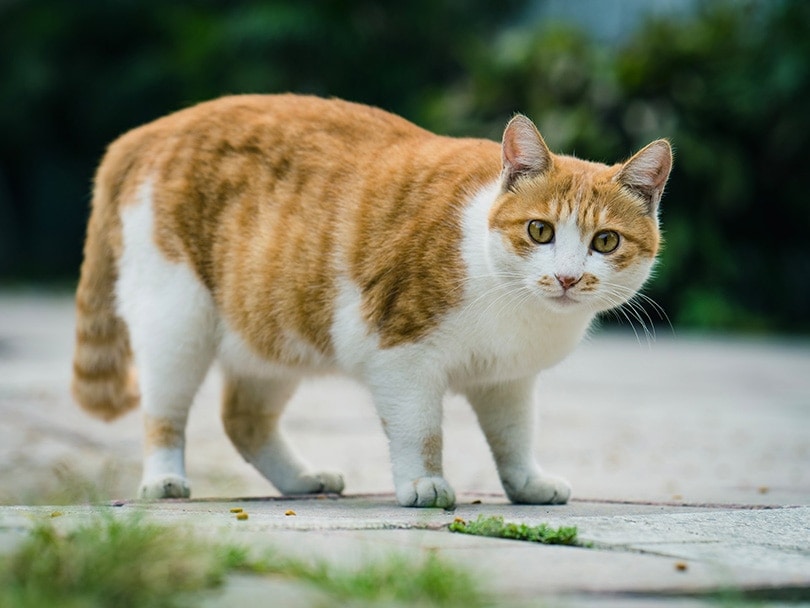
Unnatural Perception
Though some claim that a sausage is close to what would be considered biologically appropriate for cats, others argue strongly that a sausage is a man-made food product and not natural at all. As such, though it’s marketed as a meat product, they don’t feel like it’s something a cat should consume.
Raw Sausage Risks
Up until now, we’ve been talking about primarily cooked sausage. If your cat is fed raw foods, their fresh-bought sausages might not have as many preservatives and unknown ingredients. However, raw food is not without its risks either.
Salmonella is a dangerous bacterium that is sometimes found in uncooked meats and is implicated as a major health risk with raw food for both you and your cat. Raw foods may also harbor parasites and other toxins that may harm your kitty. Some of these risks can be averted by sourcing your meats from reliable sources/butchers who pasteurize their raw products.
The 3 Healthy Alternatives to Sausages
1. Chicken
Chicken is a great substitute for sausage, and fresh chicken contains plenty of protein without any harmful chemicals or ingredients. We recommend boiling or baking the chicken before chopping it up and feeding it to your cat in small pieces after it cools. Remember to never feed your cat cooked bones of any kind. You can also purchase commercial brands that are just as healthy and delicious. Chicken broth can also be used as a topper for your cat’s food.
2. Fish
Fish is another fantastic substitute for sausage. Fish is a great high-protein treat. Many cat food brands contain salmon and other fish in their product lines. Alternatively, you should cook some fish for your kitty and serve it to them deboned with no seasonings. Raw fish is not considered safe for cats, as most raw fish contain high levels of thiaminase, an enzyme that can lead to a thiamine (vitamin B1) deficiency in high amounts.
3. Homemade Treats
Since a store-bought sausage may have many unknown ingredients, an alternative is a homemade treat. Homemade treats allow you to take creative control of the ingredients and also offer more peace of mind, as you know exactly what’s in the food you’re offering your cat. However, it’s best to only offer these using recipes that are formulated specifically for your cat by a veterinary or certified animal nutritionist.
Now that you know what you can safely feed your cat, it’s just as important to find a bowl that supports their health and well-being. With whisker-friendly bowls and a wide tray to catch any spills, our Hepper NomNom Cat Bowl is our favorite option.
Summary
If your cat steals a piece of sausage from your plate, they will likely be fine, but we don’t recommend sausage as a regular part of their diet. Choosing another meat, like chicken or fish, would provide even more nutrients without the harmful ingredients, and your cat is likely to enjoy them more than they would the sausage. If your cat enjoys sausages, it’s alright to give them a small portion on occasion. However, it may be worth it to look into other treat options for the long term.
See Also:
Featured Image Credit: Shaiith, Shutterstock




